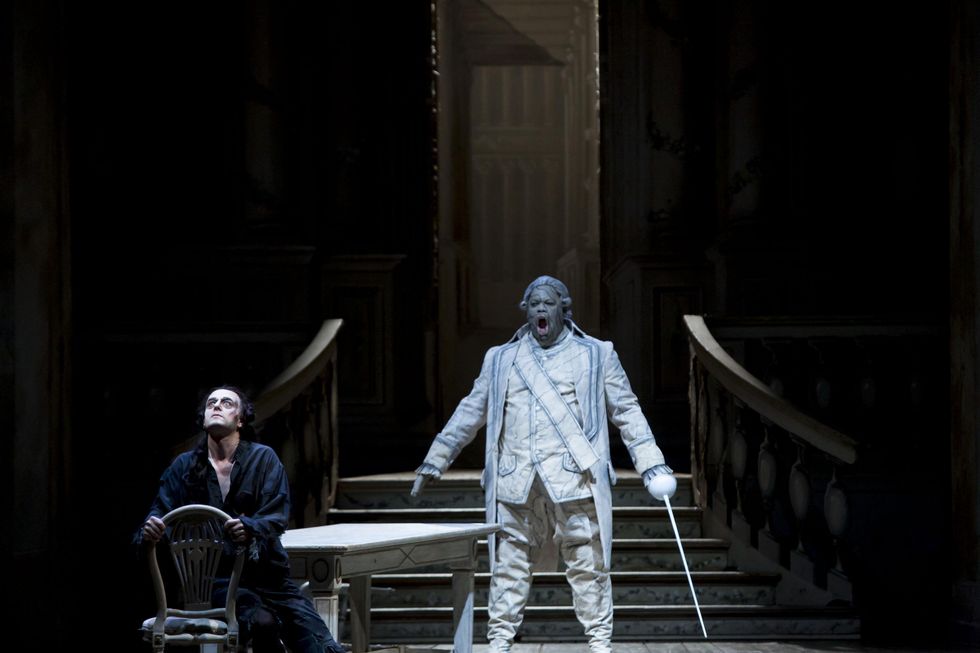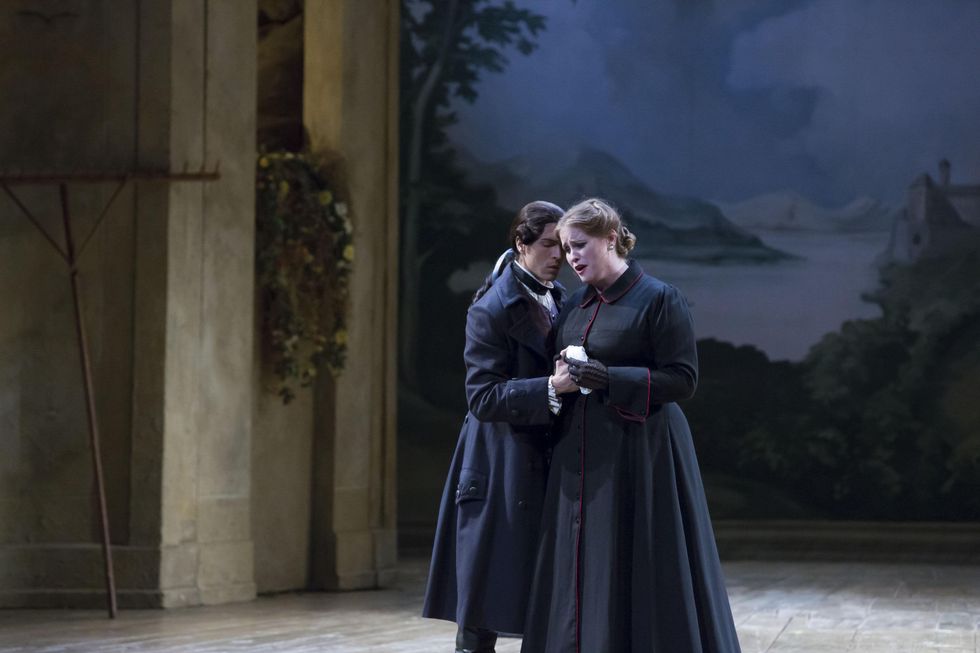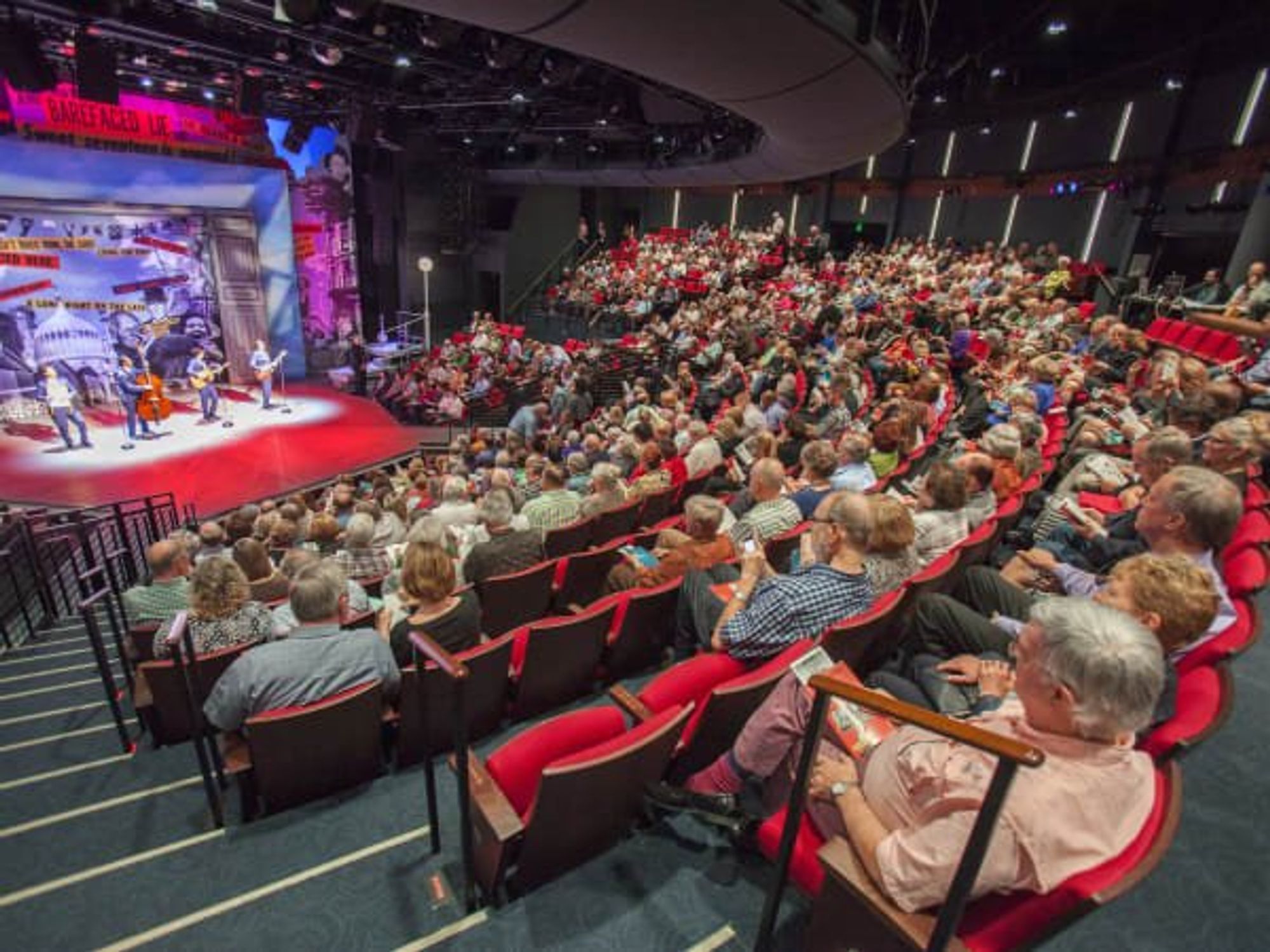The review is in
The thrill of bad behavior: HGO's Don Giovanni goes to the dark side but is not wicked enough
Sometimes you're so wicked you get dragged down to hell. Sometimes you're so wicked, you don't even care.
Central to Mozart's Don Giovanni is the vicarious thrill of bad behavior while making audiences feel a little dirty for enjoying the Don's wicked ways. Don Giovanni appears at the Houston Grand Opera not to damn but to save the season from the debacle that is Show Boat. But you may not hear angels singing just yet. This Don Giovanni shines at some stellar moments but too often singes when it should scorch.
If an opera's protagonist makes a practice of seducing or assaulting women and keeping elaborate records of his conquests in a little black book, we should assume he might throb with charisma and allure. Nearly seven years ago, just after moving to Houston, I saw this very production of Don Giovanni at HGO during the 2006-7 season and still remember the sensational and sexy Mariusz Kwiecien.
Now there's a singer you'd follow down into flames.
With an often-ill-fitting cloak and wig, this Don looked more Edward Cullen than Jacob Black.
This season's Don, Adrian Eröd, was technically flawless in his HGO debut Friday night but only occasionally enthralling. With an often-ill-fitting cloak and wig, he looked more Edward Cullen than Jacob Black.
Forgive me the gratuitous reference to Twilight: I blame the pasty makeup. Besides, if, like Don Giovanni, your conquests includes hundreds of women across Europe, you might want to seem more the brawny werewolf than the sensitive vampire.
Chance to shine
The failure of the Don to seize center stage in the first act offered the non-leading men a chance to shine. Kyle Ketelsen made for a potent Leporello: funny, booming, and always about to upstage the Don. Someone I chatted with during the intermission, who had never seen the opera before, was quite a fan.
"Maybe he and the Don should switch," she said.
Joel Prieto's HGO debut proves persuasive in portraying Don Ottavio. His voice was perfectly that of a faithful young lover: sweet, clear, and forceful.
On a few occasions I had the pleasure of hearing a young Michael Sumuel sing when he was the student of my colleagues at Rice's Shepherd School of Music. A former HGO Studio Artist and a stellar Schaunard in HGO's La Boheme this season, Sumuel was a very fine Masetto. As Don Giovanni was stealing his fiancé, Zerlina, Masetto was nearly stealing the scene.
Both Prieto and Sumuel struggled at times to rise above the orchestra, which appeared to be a consequence of awkward positioning. They weren't the only ones. Singers were too often facing odd directions or trapped upstage on a raked surface that had visual if not acoustic appeal.
This was not the only feature of the production that seemed to cool the flames ignited by Don Giovanni's infamous appetites. Blocking was frequently static or stilted. The tempo felt slow, especially in the first act, rendering the powerful "La ci darem il mano" pedestrian. The Don is a creature of libido, and libido is rarely pleasing when sluggish.
Powerful women
It is a strength of Lorenzo Da Ponte's libretto that three powerful and distinct women anchor Don Giovanni. Donna Anna, Donna Elvira, and Zerlina represent the past, present, and future objects of the Don's lust.
Whether mournful or vengeful, Willis-Sørensen was utterly convincing.
The significant stand-out performance came without question from Rachel Willis-Sørensen. As a woman who narrowly saves herself from the Don's assault only to later discover he has slain her father, Donna Anna constantly must sound the siren of alarm throughout the opera with only her voice. Whether mournful or vengeful, Willis-Sørensen was utterly convincing.
The same couldn't be said for Malin Christensson who seemed to struggle both dramatically and vocally with Zerlina. And while Veronika Dzhioeva fared somewhat better as an adequate Donna Elvira, she was far from Ana Maria Martinez's electrifying Elvira in 2006. I can still hear her shrieks of terror and rage.
Second act perks up
In spite of an underwhelming first act, the second perked up considerably. Suddenly the Don seemed more like someone you'd jump out of a window for if he serenaded from below.
But the most potent moments came in moments of ensemble singing — the masked Donna Anna, Donna Elvira, and Don Ottavio signing downstage to the audience or later an ensemble of six confused by the wily Don. There's an appealing additive quality to Don Giovanni as Mozart builds duets into trios into quartets into sestets to suggest a gorgeously expanding universe of sound.
At the end, the Don faces off with his victim, the murdered Commendatore, who returns as a ghostly statue to harrow the sinful man. The deep, throaty Morris Robinson exposed in the final scene the terror that was always hovering beneath the often-playful absurdity of the plot. Defiant to the end, the Don sinks into a square of smoke and orange light, leaving behind only victims who cheer his demise and a sad, limp wig.
Doesn't that just say it all?


